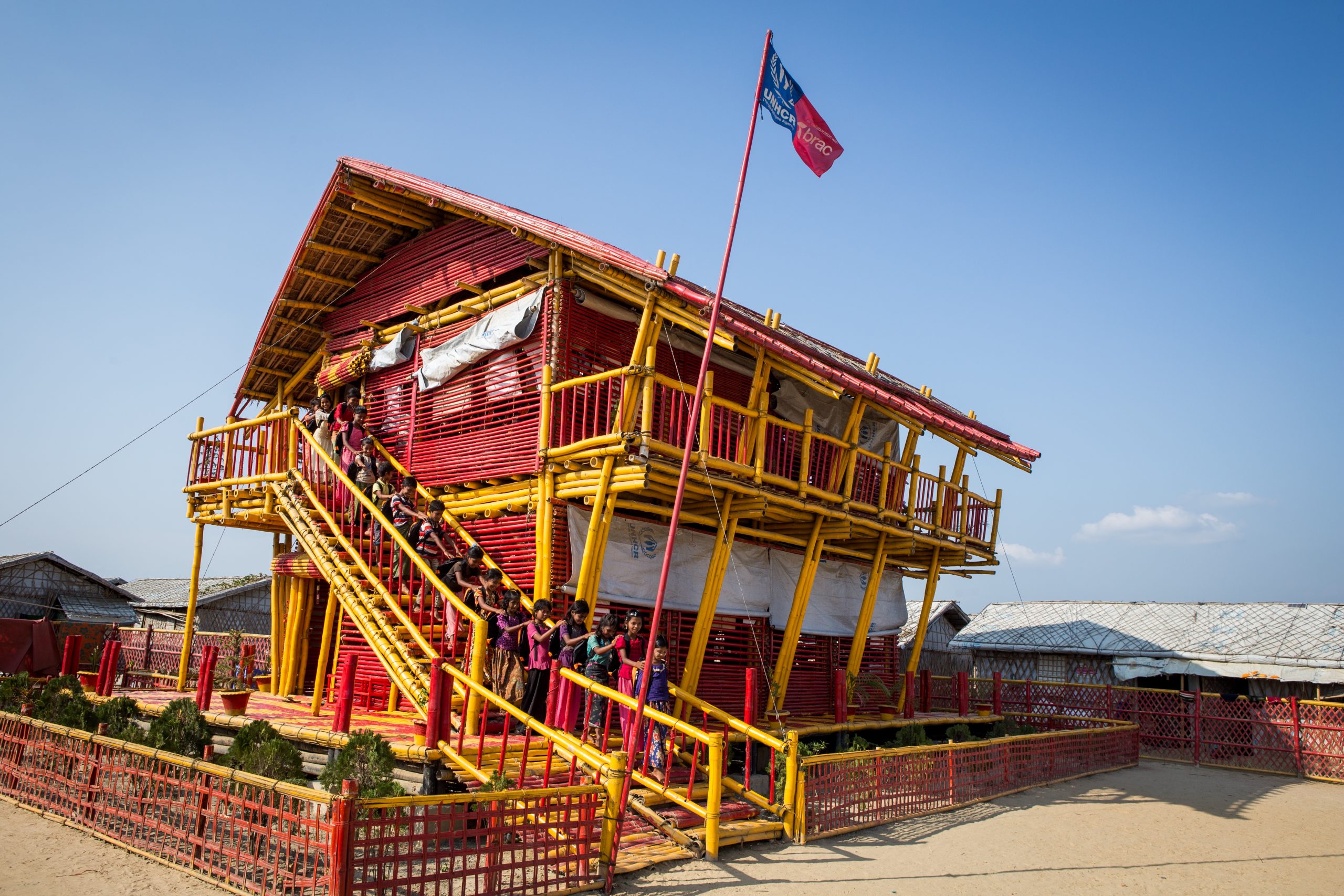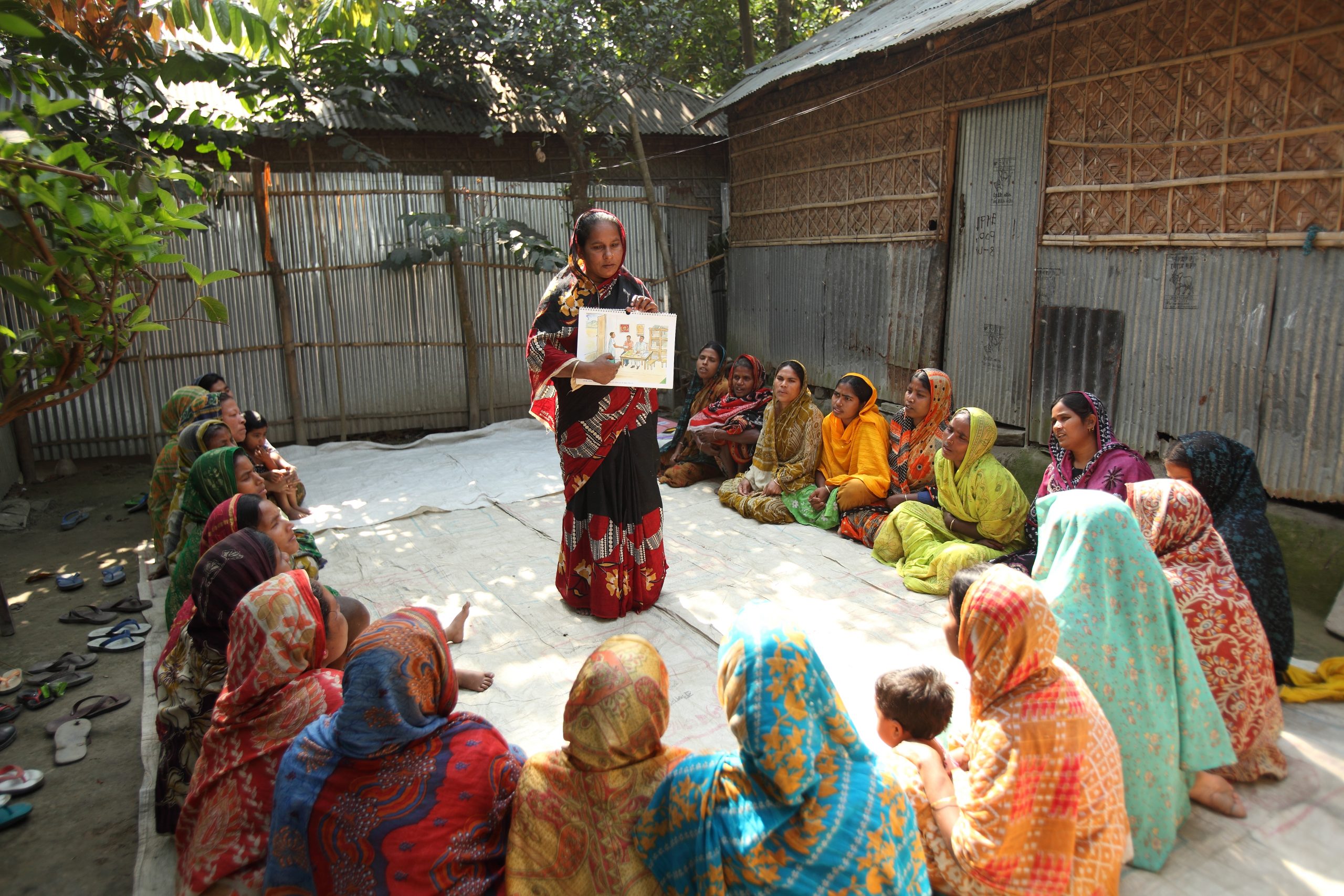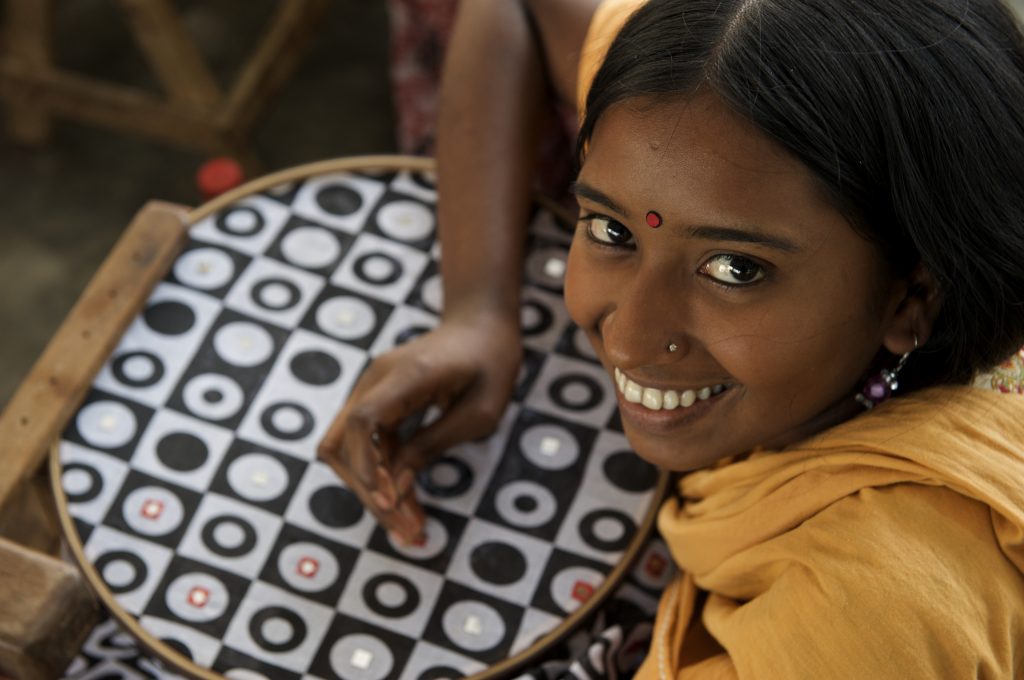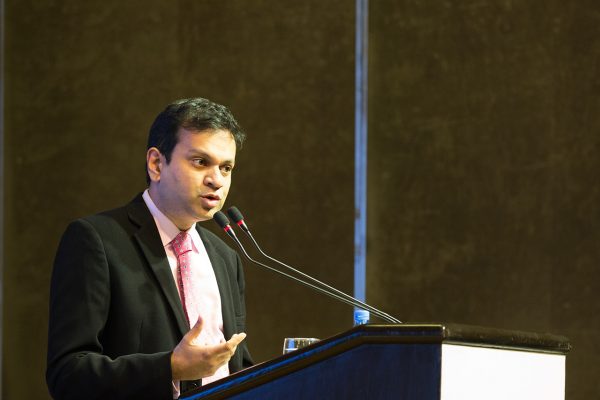“We are not just dreaming of a better world – we are building it” Asif Saleh on BRAC’s 50th
Reading Time: 6 minutes
The speech given by Asif Saleh, Executive Director of BRAC Bangladesh, at BRAC’s 50th anniversary celebrations on 21 March 2022.
It’s been half a century.
Of resilience, of hope, of hard work.
Of getting up every day with a sense of purpose and not giving up.
It’s been a journey that has taken many turns – but there has always been one thread that has weaved through it all.
The conviction that things can change and that every single individual can bring about that change.
BRAC’s founder Sir Fazle used to say –
When people have the opportunity to realise their potential, it is as if a light gets turned on. We now partner with over 100 million people, igniting those lights all around the world.
When we started, there was never a grand plan of building the largest NGO.
The plan was to support the people who needed it the most.
The story of the last five decades is the story of BRAC being true to that purpose.
It goes without saying that BRAC’s genesis is deeply rooted in Bangladesh’s independence.
Sir Fazle Hasan Abed was one of the young diaspora who returned from abroad to build the nation after the brutal war of independence.
BRAC’s first project, in remote Sulla, was to build 10,200 houses, provide emergency food support and medical services to people who returned from India after the war. After a few months, people had different needs – long term livelihoods and skills building. Community libraries were created, which became the centre of social mobilisation, and functional literacy was introduced for adults. In 1978, Aarong started – so that artisans in rural areas could get a fair price for their products. Microfinance also started around that time.
In the 80s, BRAC became a household name by taking the learning about homemade oral rehydration therapy solutions to every household in Bangladesh, and teaching mothers how to make it to prevent diarrhoeal death of children. BRAC immunised almost half the country’s children. Both these interventions dramatically improved the child mortality rate.

BRAC’s oral therapy extension programme during the 1980s. Copyright: BRAC
The 90s brought expansion
22 one-room schools that started in the mid-90s expanded to 64,000 schools by 2009, as did many other programmes. The nationwide TB and malaria prevention programme started. BRAC Dairy started, linking small producers to the urban market for better prices. BRACNet, one of the country’s first internet service providers, started, with a goal of improving connectivity in rural areas.
The new millennia repurposed BRAC to support Bangladesh to attain the Millenium Development Goals
BRAC Bank, with a goal towards financing small and medium enterprises, started in 2001. Our water and sanitation programme expanded to almost half the country, building latrines and changing behaviour. BRAC University started the same year, to create a new generation of socially conscientious leaders. The Ultra-Poor Graduation programme, now a flagship BRAC programme, started in 2002. In the same year, BRAC International started, heralding a new journey, outside Bangladesh – to Afghanistan.
During the fifth decade, one of the most pivotal innovations was bKash, Bangladesh’s first mobile financial service company. Focus went to supporting young people through skills development and people displaced from rural areas living in urban poverty. In 2017, we went all out to support the Rohingya fleeing Myanmar in one of the worst humanitarian crises of our generation, and became the largest civil society responder. Our international expansion continued and we became the number one NGO in the world.

BRAC’s two-storied learning centres in the Rohingya camps, southern Bangladesh. Photo credit: © BRAC, 2020
In our 47th year, BRAC’s founder passed the baton to the next generation. Soon after his passing, we were faced with the global pandemic. Our entire organisation responded to stand beside people with economic and health support.
The last five decades have been eventful, but nothing has been more transformative than our work with women. Women have been the central focus of all our work and a key pillar of our delivery mechanism. Due to the work of BRAC and many other NGOs, women have come out of their homes, gotten educated and joined the workforce in large numbers.
But that agenda remains unfinished.
It was evident when I visited Jamalpur last week, which is not far from Rowmari, one of BRAC’s critical intervention areas in the 70s known for its extreme poverty.
The locals spoke about how one would have to walk home from the train station as there was hardly any transportation back then. There also wasn’t much economic activity other than farming.
The roads that took me there last week, however, told another story – of transformation.
A story of a rising middle class, bustling with cars, buses, electric vehicles and farmers riding tractors. The local economy is thriving, with big stores of homegrown brands selling refrigerators, smart TVs, furniture. The context has changed and prosperity is palpable.
But then there are some stories that still have not changed – stories of the subjugation of women. It became obvious when I listened to the women from the Nakshi project, BRAC’s skills building project in Jamalpur.
Their experiences were harrowing. Parents killed by road accidents and children having to fend for themselves, a woman left by her husband holding the responsibility of all of their children with no legal protection, a husband having a premature stroke leaving the entire liability and family burden on his wife. In many of these cases the women were married off very early, only to find themselves facing a future that they did not sign up for.
“I have seen many defeated men but I have never seen a defeated woman”, said our founder once.

Women learning about their rights at one of BRAC’s women-led village forums in Rangpur, northern Bangladesh. Photo credit: © Sumon Yusuf, 2018
These women were also not defeated. But they needed that extra skill and confidence that someone was there rooting for them. Someone telling them – “Apa, apni parben” (sister, you can do this).
Then I met some people on the bank of the Brahmaputra river in one of the chars (riverine islands) – a small piece of land where 800 families are surrounded by the mighty Jamuna river, at the brink of climate change-related disasters, and saw their struggle first-hand.
These are the new frontiers. Our work is far from finished.
On my way back, I sat on the boat trying to think what would make us effective in taking on these future challenges and what lessons we could derive from the past.
Make the invisible visible, by listening to people, then instil in them the confidence that they can bring about change in their own lives. Then stay close to them with timely support as they go ahead, organise and change their lives. That’s the BRAC template.
We are the impatient optimists, the social entrepreneurs who bet on human potential – and the return has been handsome.
14 million out-of-school children graduated from our schools.
Ten million people graduated out of ultra poverty, half of Bangladesh got latrines and hundreds of thousands of healthcare workers and volunteers dramatically altered the landscape of maternal mortality, child mortality and nutrition.
Our financial services are availed by millions of people who are out of formal banking systems. BRAC’s social enterprises like Aarong and BRAC Seed lead their respective sectors for quality and excellence.
BRAC University is the top private university in Bangladesh, and leads the national research agenda.
bKash is one of the largest mobile financial service providers in the world and transformed Bangladesh’s financial system.
BRAC’s Ultra-Poor Graduation programme is now being replicated across 46 countries in the world, with BRAC plotting major expansion in the Africa region in the coming years.

An artisan in rural Bangladesh handcrafting an Aarong product. Copyright: © Shehzad Nooorani/BRAC, 2018
Today, as we speak, our new programmes in early childhood development and skills are scaling up and getting worldwide attention. We are planting the seeds of a holistic approach to climate change adaptation. We are contextualising the Ultra-Poor Graduation programming for new challenges. Technology adaptation is fast transforming the way we work. We are getting ready for the future social enterprises through new pilot initiatives in health and education. We are making investments in new tech startups through BRAC’s own impact fund. We are investing in new social challenges like mental health and in new approaches to old challenges like gender justice. While we are moving towards a more targeted approach in poverty pockets, we are not shying away from building stronger partnership with the government in strengthening the national system.
None of this would have been possible without our partners.
Thank you to the Government of Bangladesh for making us part of the national development journey and giving us the space to flourish. Thank you to each and every one of our development partners. Starting from that first tiny Oxfam grant for Sulla to the large strategic partnership agreement with Australia, the UK and Canada – all of you have shared our vision of people-centric development. And last but not least, thank you to our staff members, clients and programme participants who co-created this unique journey.
We have seen immense progress in the last 50 years.
But we have a long way to go to establish a just and equal society – and it will take all of us to get there – more so than ever in this era of uncertainty. You can count on BRAC not to deviate from this journey.
We are not just dreaming of a better world, but together – we are building it.
Thank you for standing with us, through half a century of trying to find a way in spite of all the odds at that last mile.
We look forward to working with you, our co-authors, to write the next chapter of BRAC’s story.
Asif Saleh is the Executive Director of BRAC Bangladesh.





